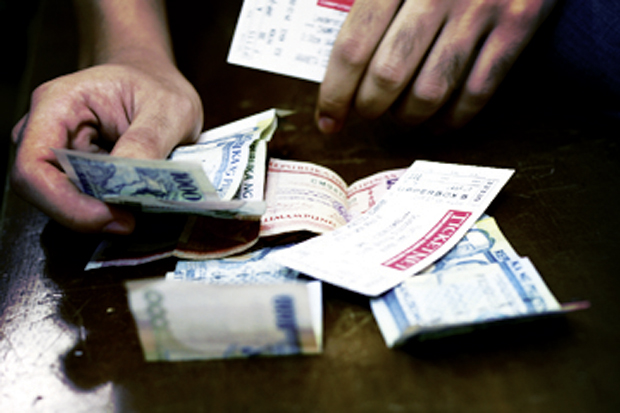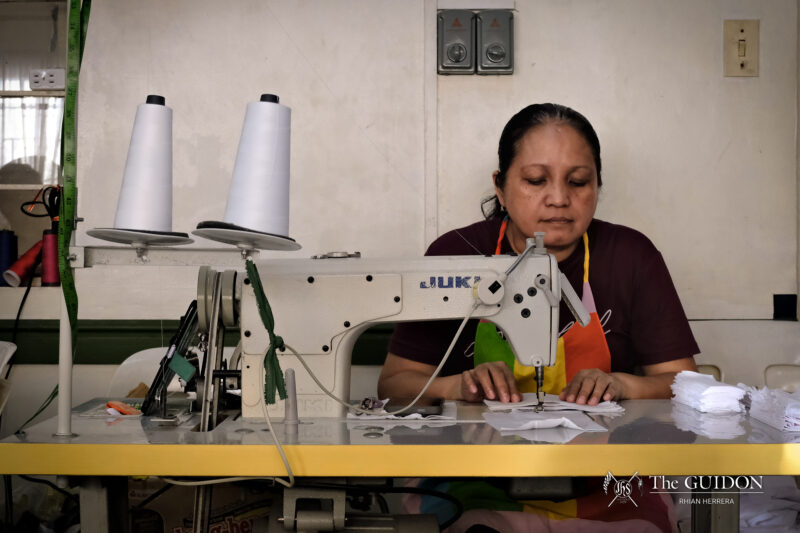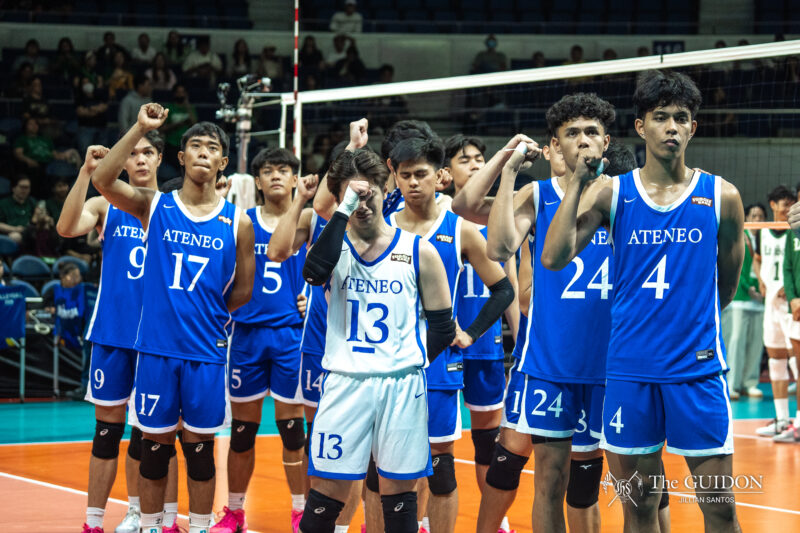
HIGH STAKES. Bettors can wager for as low as P5,000 and still end up with a huge amount of money. However, if one’s on the losing end and can’t pay, one might end up being hunted by a syndicate.
The ball leaves his hands, a game, a season on the line. The crowd gasps as the shot spins closer and closer to the rim. Time seems to slow down as the ball settles gently into the rim. The crowd roars, celebrating their team’s victory. The players exult on the court, mobbing the star guard who saved their season.
All over the country, large sums of money are exchanged. Shifty characters collect money from all sorts of people, from high school students to rich businessmen who rue the losing team’s performance. Others are ecstatic, eagerly awaiting the same shifty characters to hand them their cash.
Welcome to the world of sports betting.
Rules of the game
Domeng*, a veteran bookie based in Manila, had his first brush with sports betting when his classmate offered him a part-time job as a bookie. “He asked me if I [knew] someone who likes to bet in basketball games,” he recalls. “I [told] him that most of my classmates currently bet, so he [offered] me a job.”
According to SportsBetBookies.com, an online bookie, sports betting is the placing of a bet or wager on a sporting event, the most popular of which is basketball. While bettors are not limited to students, Domeng says, “My clients are [mostly] students, but some alumni actually contact me to place bets.”
Domeng relates different types of betting that he has encountered, the more common of which is called a team bet. Here, he says the bets are placed on which team they think will win a game. To entice more bets, Domeng says point differences are installed by oddsmakers – individuals who set the odds of the game.
“This happens when one team has an advantage over the other, like a star player or home court advantage,” he says. Similar to this type of betting is the series bet, where only the bet involves the outcome of a series, such as a championship or semifinal match-up.
Matthew*, a sophomore, is an active sports bettor who has experience with another form of betting, over/under. “Over/under bets are simple. If the teams combine to score more than the ‘point target,’ then the ‘over’ bets win. Otherwise, the ‘under’ bets take the cash,” he says. “For example, there was a game where two very high scoring teams were playing – almost a lock to exceed the score limit. I bet the ‘over,’ and cashed in on the people who bet ‘under.’”
Colonel Ericson Velasquez, a Philippine National Police officer who was once assigned to investigate game fixing and sports betting activities in the National Capital Region, says sports betting had been introduced by a syndicate in order to earn profits. “These illegal activities have been [present] even during the early days of basketball league in our country,” he says. “It has penetrated the campus [level] since basketball has become a very popular [sport].”
High risk, high reward
Though sports betting might seem like a matter that coaches and fans bring up when complaining about the officiating, Velasquez says this phenomenon is more widespread than it seems. “Based on interviews with bettors and bookies, there is a really huge number of people engaged in this activity,” he says. “It may seem impossible, but modern technology allows bets from Visayas and Mindanao be forwarded to Manila.”
In Domeng’s experience, he says there is serious money involved. He recalls that while the average bet per game of a normal student is P5,000, the losses tend to pile up. “The highest loss I’ve seen a student pay in a week is P110,000 while [for] an alumni, it is P250,000,” he says.
Matthew adds, “If someone is unable to pay, the bookie reports to the main syndicate.” He says this forces the bettor to come up with the money. In Domeng’s words, “One thing is certain – you can run, but you can’t hide.”
But even such chilling ultimatums and real risks do not deter some students from placing their bets. The lure of the action, excitement, and easy money seems to trump the dangers involved.
Authority on casino gaming Frank Scoblete describes casino slot machines as “young courtesans, promising pleasures undreamed of, your deepest desires fulfilled, all lusts satiated.” Matthew attests to having a similar sentiment towards sports betting.
He recalls being introduced to the gamble by his cousin who put him in contact with a bookie. “It was a source of extra income, a fast solution to monetary problems,” Matthew says. “It makes watching the games more exciting and more fun, since there’s something on the line. It’s a rush.” Students like Matthew, according to Velasquez, engage in illegal gambling to have more money or to win back what they have lost.
“Another thing that usually happens is when you try to get back what you’ve lost. For example, if you lose P5,000, you’ll attempt to recoup the loss and bet – even if you don’t have any money,” he explains in a mix of English and Filipino, attesting to Velasquez’s lead. “Eventually, you could go as high as P50,000.”
In Essentials of Understanding Psychology, author Saundra Ciccarelli illustrates this intrinsic urge to gamble even when one has lost money. She says gambling is an example of a “variable reinforcement schedule,” wherein gamblers know that slot machines, called “one-armed bandits,” will eventually hit the jackpot yet they do not know exactly when. This drives them to keep feeding coins to the machine.
Domeng finds this urge to gamble as the hand that feeds the sports betting businesses. “Some bettors keep betting even if they don’t have money, just to break even,” he says.
Bringing down the game
Aside from the idea of the tainted integrity and values of both varsity players and student bettors, Velasquez says his investigations have shown far more appalling effects of sports betting. “On some occasions, players [are] being physically assaulted due to noncompliance to the alleged play that [they] must deliver during certain games,” he says. “There were also referees and game officials involved, [which shows how] these illegal activities are indeed happening.”
Domeng, however, does not see anything wrong with it. “I don’t know if there is any effect on their morality as a person,” he says in Filipino. “But [based on experience] the people who bet a lot then run away when they are knee-deep in debt are the worst.”
“I think smart, conservative betting isn’t too bad – it’s just something fun to do. However, it ends up [badly] when the student sees it as the primary solution to his monetary problems,” Matthew says. “It makes the student forget the value of hard work. Gambling is an easy way out.”
While sports betting seems to have become the sideline activity in every courtside game, Velasquez says the efforts of authorities are not enough to stop illegal dealings as long as there are people who continue betting on their favorites. He adds, “Players and coaches can play a vital role in order to minimize, if not totally stop, this menace.”
*Names have been changed to protect the individuals.






